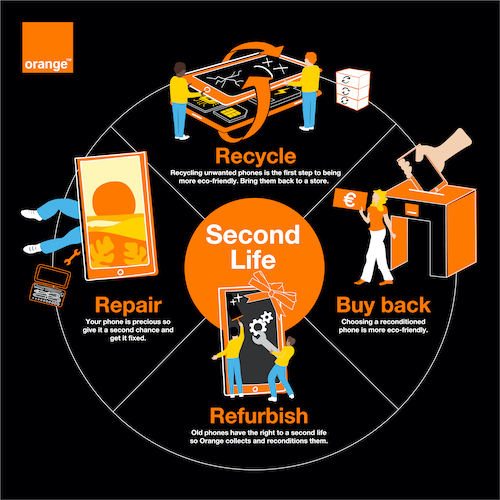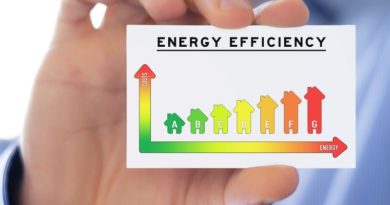
The challenges and benefits of integrating ESG criteria into the ICT value chain
Orange’s “Raison d’être” clearly encompasses the ESG criteria: “As a trusted partner, Orange gives everyone the keys to a responsible digital world.” Our mission is to ensure that digital services are well conceived, made available and used in a more caring, inclusive, and sustainable way in all areas of our business. Orange does everything in its power to ensure people and organisations enjoy a more autonomous, secure digital life.
We have a responsibility to support the societal and environmental transitions generated by our activities. And we cannot deploy technology without the efforts of our teams and partners in the countries we operate. Our Corporate Social Responsibility (CSR) policy is built around ethics, anti-corruption and compliance, duty of care, close collaboration with stakeholders and providing support throughout the value chain (from supplier to customer).
As of 2019, our CSR ambitious commitments have become part of our strategic plan and were amplified in our new strategic plan “Lead The Future”.
ESG by Design sits at the heart of our enterprise model. This is essential to transform ourselves and help others transform to meet ESG targets. It is a guarantee of performance and long-term sustainability for the Group, and legislation such as the Corporate Sustainability Reporting Directive is a very useful tool but nevertheless complex to implement.
Our ESG commitment
Being net zero carbon by 2040
As a leading telecoms operator, we aim to build a more responsible digital world by committing to net zero carbon emissions by 2040. This translates into considerable efforts to reduce our direct and indirect CO2 emissions, whether via energy efficiency, renewable energy, circular economy, and carbon capture for the residual emission (10% maximum of our 2020 emissions).
We have set a new milestone to reduce our greenhouse gas emissions on all scopes 1, 2 and 3: -45% in 2030 versus 2020. Orange is fully in line with its first emission reduction target on scopes 1&2 related to the energy consumed in Orange’s activities, reaching its 2025 target as early as mid-2023.
We have implemented a proactive policy for energy efficiency, use of low-carbon energy solar panel installations, and low carbon energy purchasing, primarily from new production assets. Almost 60% of renewable energy bought by Orange in 2023 comes from Public Purchase Agreements, the remaining 40% is bought with Guarantee of Origin Certificates. Orange is also very committed to the circular economy, focusing on mobile phone collection in our stores, refurbished smartphone sales and network equipment reuse and improved lifetime.
Contributing to a trusted society and digital inclusion
Orange’s DNA is the development of a trusted society. Orange has notably developed protection against digital threats. For example, as part of the fight against cyberbullying, Orange created in the autumn of 2022 Safe Zones (safe havens for the user) in the world of the game Fortnite, then Roblox in several countries.
We are also committed to digital inclusion; we were ranked second for digital inclusion in 2023 by the World Benchmarking Alliance. This includes extending our actions and beneficiaries to our free programmes which aim to provide people with digital skills in all the countries we are operating in, thanks notably to the Orange Digital Centres[1].
ESG across the value chain
To support its transformation and help its stakeholders, customers and suppliers, to engage in their own transition, Orange has started to integrate ESG criteria in some of its key processes, such as implementing a responsible purchasing policy. CSR clauses are now included in our supplier contracts and CSR performance of the potential IT and Networks suppliers is valued in our Request for Proposals at 20%. This is an important lever to reduce our scope 3 commitments. In 2022, 96% of the contracts signed included the CSR clause, compared to 92% in 2021 (URD 2022). We work with our suppliers to reduce our scope 3 and develop a “win-win approach”, in particular regarding the recycling of network equipment.
In September 2023, Orange also successfully issued its first Sustainability-Linked bond, for a nominal amount of €500 million, linked to the company’s target, as indicated above, to reduce by 45% its absolute greenhouse gas emissions (Scope 1, 2 & 3) by 2030 (vs. 2020) and its commitment to provide digital support and training to external beneficiaries (6 million beneficiaries cumulatively between 2021 and 2030). The interest margin of Orange’s Sustainability-Linked bond will increase if those targets are not achieved, thus having an incentive effect. This issuance follows Orange’s publication of a Sustainability-Linked Financing Framework. This Framework has received a Second Party Opinion from Moody’s Investors Services with a qualification of “Significant contribution to Sustainability”.
Impact of the Corporate Sustainability Reporting Directive (CSRD)
The CSRD objectives are welcome.
Orange supports the reporting requirements set up by the Corporate Sustainability Reporting Directive and believes that setting harmonised standards helps preventing greenwashing; establishing transparency and comparability that are necessary to drive best practices and transformation.
Orange has chosen to make its CSRD implementation project an opportunity to raise questions and awareness within the Group on its policies and action plans to steer ESG issues, their impact, risks and opportunities.
The double-materiality analysis, which is the cornerstone of this new regulation, is a very good tool to support the deployment of the Group ESG strategy. This analysis links the company’s impact on the environment with their consequences for the company’s direct and indirect ecosystems and with the risks to the company’s financial performance.
Orange’s climate strategy relies on two pillars: mitigation and adaptation. By integrating the value-chain in the analysis and reporting requirements, all the actors of the ecosystem will have to work together towards sustainability.
But its implementation shows several concerns that need to be tackled swiftly.
The timeframe, the huge volume and complexity of the new information required within CSRD is very challenging. It implies an important amount of work and additional costs for many teams in every country from data collection to reporting production. Orange believes this work would be more proportionate and efficient by focusing on information that are really material and allows the company to make a difference and transform itself towards a more sustainable model for all parties.
For instance, for Orange at this stage, the scope of the reporting is equivalent to the consolidated financial perimeter, hence it also includes very small entities for which the reporting of CSRD information will represent a significant workload and costs, even though this information has little impact on the total result.
The competitiveness of European companies is also at stake. Non-EU competitors will not be subject to the same level of detailed reporting obligations and while the CSRD is a European standard, non-financial rating agencies are now essentially non-European. Orange considers this situation to present a risk for the standard itself because those who will evaluate companies and therefore guide investments could follow a different logic from the European one.
In this context, the Group welcomes the European Commission’s announcement to reduce reporting requirements by 25%.
Orange will continue with its peers to support the dialogue with the European Commission on how best to implement Europe’s vision for the future with an efficient and coherent ESG reporting.
[1] https://www.orange.com/en/orange-digital-center-committed-digital-equality





